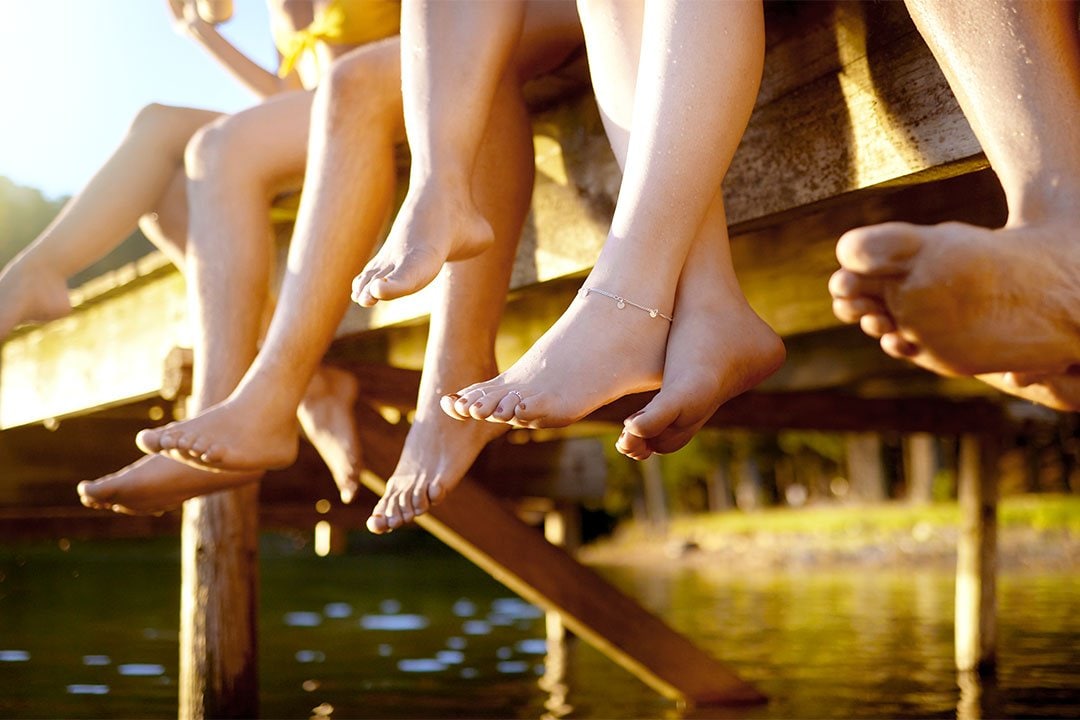Summer Foot Care
 Summertime brings lazy days at the beach and backyard barbecue fun – but the easy breezy days of summer can also wreak havoc on your feet.
Summertime brings lazy days at the beach and backyard barbecue fun – but the easy breezy days of summer can also wreak havoc on your feet.
The flap about flip flops
Flip flops are a summertime favorite, especially among the younger set. And although cheap and convenient, these popular shoes offer no arch support and very little cushion, which can lead to sore arches and heels if worn for an extended period. Even more worrisome, this soreness can lead to chronic conditions like inflamed Achilles tendons and plantar fasciitis.
Foot problems are compounded with age. Younger feet can tolerate abuse much better than older feet. Use flip flops reasonably. If you have to stand for long periods of time use a more substantial shoe. Do not wear flip flops if you are walking longer distances such as extended shopping or vacations.
A gardening tip
Another popular summertime shoe is the plastic foam clog, especially among gardeners. However, keep in mind that soil-borne bacteria and protozoa can penetrate the skin of the feet and cause infection. This can lead to discolored and deformed nails, which are unsightly and embarrassing. The best tip? Wear socks with your Crocs®.
Barefooters beware
Summer just wouldn't be summer without the feeling of sand and grass between your toes. But going barefoot also increases the risk for bacterial, fungal, and viral infections. For example, athlete's foot is commonly spread in a warm, moist environment like public showers, saunas, and pool decks. Similarly Plantar warts are caused by a virus which thrives in similar conditions. In both cases, the fungus or virus enters through an existing wound in the skin, causing even the smallest scrape or scratch to become prone to infection.
An ounce of prevention
The best way to prevent foot disease or injury is to prevent problems before they start. Here are simple suggestions for healthy, summertime feet:
- Wear flip-flops sparingly. They are not an "all day/every day" shoe.
- For extended periods of walking or standing, choose a sturdy well-cushioned shoe with a firm arch support.
- Dry feet completely before putting on socks and shoes.
- Wear protective shoes in public showers, saunas, and pools.
- Wear socks and a closed-heel shoe or boot when gardening.
- Seek medical attention for minor problems before they become major problems.
If you have foot problems, try over-the-counter treatments. If they aren't working to your satisfaction, make an appointment with a foot specialist.